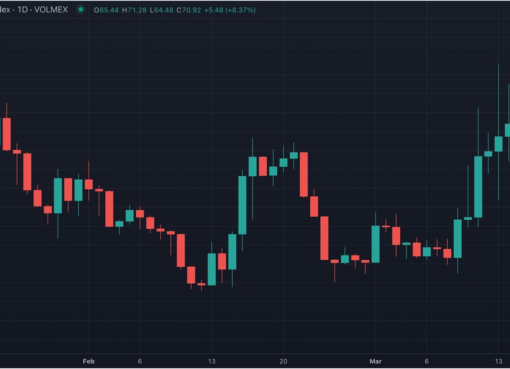Crypto industry layoffs appear to have slowed down significantly over the past month with an estimated 570 crypto employees dismissed in February, down from an estimated 2,850 in January.
Cointelegraph compiled the figures based on publicly reported layoffs and found job cuts were spread across at least 12 companies over the 28-day period, but noticeably lacked the triple-digit crypto exchange layoffs compiled in January, such as those from Coinbase, Crypto.com and Huobi.
Instead, staff cuts came in the double-digits for the most part — impacting blockchain analytics firms, blockchain and software development firms, and digital asset platforms among others.
The most recent layoffs came from crypto analytics firms Elliptic and Messari, which cut 10% and 15% of staff, respectively.
Messari founder, Ryan Selkis, tweeted on Feb. 23 that the staff cuts were due to “market headwinds” and a restructuring of their internal teams. It is estimated to have impacted around 27 employees.
1/ Yesterday we made the difficult decision to restructure several of Messari’s internal teams, leading to a 15% staff reduction.
We’re grateful for the contributions of the teammates we have parted ways with, and will provide resources and connections to help them transition.
— Ryan Selkis (@twobitidiot) February 23, 2023
Meanwhile, an Elliptic spokesperson told DLNews on Feb. 24 that the decision to lay off 20 employees was a move to tamp down operating expenses.
It follows news from earlier in the month, when Chainalysis, another blockchain analytics company, revealed it had laid off 44 of its 900 employees, representing 4.8% of its workforce “primarily in sales.”
Neil Dundon, an Australia-based crypto recruiter told Cointelegraph “the spike in layoffs is a macro event not just in Web3 but tech in general fueled by fears of an extended recession.”
Data from layoff tracker Layoffs.fyi revealed there was a total of 24,572 employees laid off across 129 tech companies in February, down from 84,414 across 268 tech companies in January.
“Web3 is always going to be hit to a harder degree at least until Bitcoin decouples from the stock market. There may also be some fears of tougher regulations in web3 adding to the spike. But as always crypto is resilient.”
On the higher end of layoffs in the month, nonfungible token (NFT) company Dapper Labs and Ethereum-scaling platform Polygon Labs both dismissed around 20% of staff as a result of internal restructuring.
A big part of this strategy includes unifying all of our teams under Polygon Labs to drive more growth.
As part of this consolidation process, we’ve made the difficult decision to reduce our team by 20% impacting multiple teams and about 100 positions.
— Sandeep | Polygon Top 3 by impact (@sandeepnailwal) February 21, 2023
In a Feb. 21 Twitter post, Polygon co-founder Sandeep Nailwal explained the move was a result of unifying all its internal teams under Polygon Labs, leading to 100 jobs being cut.
On Feb. 23, Dapper Labs CEO Roham Gharegozlou confirmed another round of layoffs at his company following a first wave in November, noting it was part of restructuring “to improve our focus and efficiency.”
Immutable, the Australian firm behind another Ethereum layer-2 blockchain protocol, also reportedly cut staff during the month, reducing headcount by 11%.
Other firms to announce headcount reductions included crypto exchange Bittrex, NFT marketplace Magic Eden, institutional crypto custodian Fireblocks, software firm Protocol Labs and crypto media company The Block.
Payments company Affirm announced it was sunsetting its crypto program during the month amid a 19% staff cut, though it is not known how many employees from its crypto unit were dismissed as a result.
Related: Crypto recruitment execs reveal the safest jobs amid layoff season
Kevin Gibson, founder of blockchain recruitment firm Proof of Search agreed that the pace of layoffs appears to have slowed compared to January.
“Jan was big as it followed boards [and venture capital] looking [at] 2022 results and preparing for the worst,” he said. “We have seen less laid-off candidates this month.”
“Companies are still building great products and the current teams are really stretched so more layoffs would be cutting into muscle right now for many companies.”
Gibson however warns that the United States securities regulator could still “bring about more pain,” while continued press coverage of Sam Bankman-Fried and the FTX collapse “is having an effect on the public perception of the sector and mainstream adoption.”




